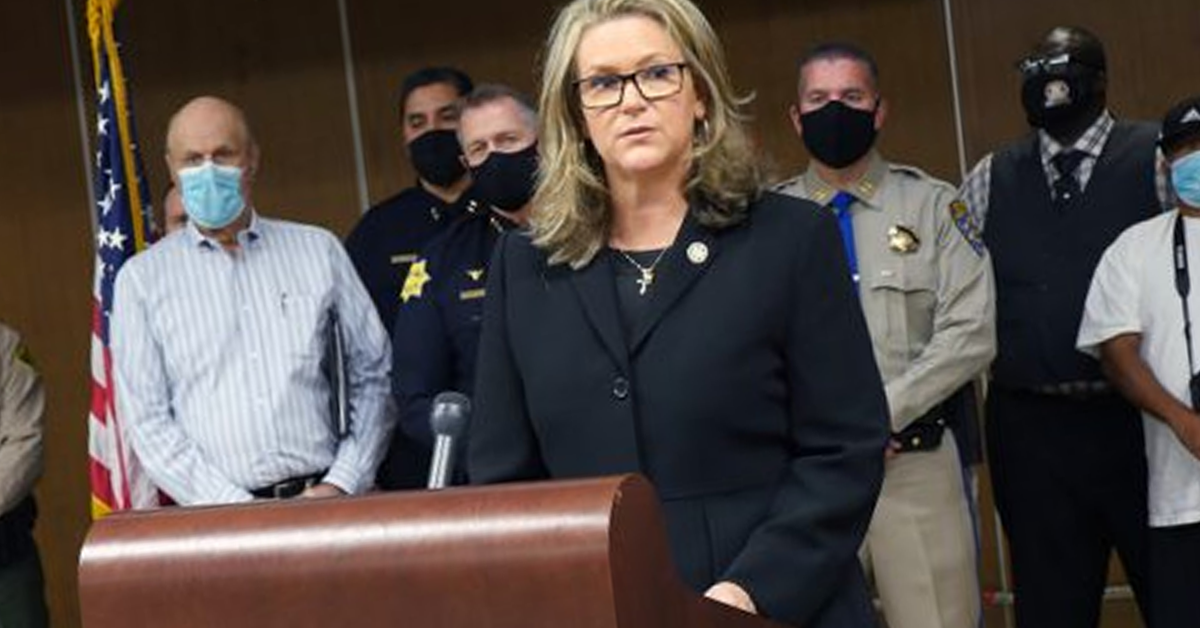Oct. 22, 2019: 10:45 a.m.: Looking to ease a decade-long restriction on pumping water south from the Sacramento–San Joaquin Delta into the San Joaquin Valley, Federal authorities released new biological opinions governing the Central Valley Project on Tuesday.
Drafted by the U.S. Fish and Wildlife Service and National Marine Fisheries Service along with the Bureau of Reclamation, the new governing documents arrived one year after a presidential memorandum from President Donald Trump expedited the review of Central Valley Project operations and environmental standards.
A key change for Valley farms, which could translate to greatly increased water delivery, comes from the new methods of operating the Delta itself.
The U.S. Bureau of Reclamation will end rigid calendar-based restrictions on Delta pumping, which served as the standard operations under the 2008/2009 biological opinions, the agency announced during a conference call Tuesday.
“We’ve been able to create a much smarter approach that focuses on real-time management,” Paul Souza, regional director for U.S. Fish and Wildlife told reporters. “We have tremendous new science that we didn’t have a decade ago.”
In its place, the agencies will engage in real-time monitoring of threatened fish populations in the Delta by boat and triggers in order to adjust pumping as needed.
The agency did note that it will still reduce pumping during spawning and migration of endangered fish species.
“The biological opinions being replaced were based on an arbitrary, calendar-based approach, and have not delivered the successful recovery of salmon and Delta smelt populations,” said Mike Wade, executive director of the California Farm Water Coalition.
Fish and Wildlife’s Souza noted a key factor in increasing flexibility to pump water under the new biological opinions was to ensure protection of fish was at or above the level created by the last set of biological opinions.
California Republicans in the House, led by House Minority Leader Kevin McCarthy (R–Bakersfield) and Rep. Devin Nunes (R–Tulare), took a victory lap on a long-sought policy change to improve water delivery for the San Joaquin Valley.
“For years, communities across California have been denied water, while protected fish species have also struggled due to decade-old regulations based on even older science and data,” a statement from the California Republicans read. “Yesterday’s actions by the U.S. Fish and Wildlife Service and the National Marine Fisheries Service to replace these failed regulations with new biological opinions based on the latest science and data is a welcome step in the right direction.”
“It is our hope that the implementation of these new regulations will bring better protections for listed fish species and the environment, as well as increased flexibility regarding CVP and SWP operations to help ensure our constituents receive the water they are entitled to or contract and pay for.”
Other key details
The new operations plan for the Delta also includes a bevy of other environmental measures affecting fish populations:
- A 10-year, $1.5 billion investment to “support endangered fish species.”
- Increased cold-water pool for Sacramento River winter-run Chinook salmon in Lake Shasta along with a 4-tiered cold water management plan for the species.
- Funding a conservation hatchery in the Sacramento-San Joaquin Delta to aid in recovering Delta smelt and other threatened or endangered fish species.
Playing the allocation game
Under the prior regime of opinions, Valley farmers were often left playing a guessing game as to when and how much water would be allocated by Reclamation under the Central Valley Project.
Reclamation regional director Ernest Conant said that 2020 water allocations would be made utilizing the standards outlined in the newly-issued biological opinions.
However, he preached caution and added that Reclamation’s initial water allocations – typically announced in mid-February – would continue to be conservative and increase depending on conditions.
This tracks with the allocations made in 2019, a well-above average year in hydrologic terms.
Reclamation’s first allocation for agricultural users in the south-of-Delta region was 35 percent of their contracted amount.
By mid-June, following five allocation updates, that figure ballooned to 75 percent.
Oct. 21, 2019, 10 p.m.: A long, contentious chapter in California’s Water Wars is set to close.
In its stead, a new, likely equally contentious chapter is likely to begin. And, as always seems to be the case, the setting is the San Joaquin Valley.
Federal officials are likely to offer a preview of what’s to come on Tuesday, but that preview arrives after a yearlong slog behind the cloak of the Federal bureaucracy.
One year ago in Phoenix, President Donald Trump signed off on a memorandum of executive action pushing two Federal agencies, the Department of Interior and Department of Commerce to begin reconsidering the biological opinions that serve as the underpinning of California’s current water delivery via the Sacramento-San Joaquin Delta.
For those who don’t speak water, the biological opinions at play here are critical documents that determine the impact pumping water may, or may not, have on certain species of fish.
These fish species include the infamous two-inch delta smelt.
Currently, the State Water Project and Central Valley Project are managed under biological opinions issued in 2008 and 2009.
The State Water Project is administered by California’s Department of Water Resources while the Central Valley Project is operated by the Bureau of Reclamation.
Trump’s memorandum, in short, required new biological opinions to be issued by the end of 2019 utilizing up-to-date scientific methods and standards to determine the impact of operating the Central Valley Project on endangered species.
Tuesday, the three agencies tasked with updating the biological opinions – the Bureau of Reclamation, U.S. Department of Fish and Wildlife, and National Oceanic and Atmospheric Administration Fisheries – are expected to unveil the new biological opinions in some form.
California’s preemptive strike
For environmental groups, any tweak to the biological opinions governing the CVP spells disaster.
During the past legislative session in the California State Legislature, environmentalists earned a moral victory with the passage of Senate Bill 1, which would tie California’s water delivery standards to the Federal biological opinions on the books as of Jan. 19, 2017.
The bill – labelled as a pre-emptive move to counter the Trump administration – was met with its fair share of detractors, including four Democratic Congressmen from the Golden State and Sen. Dianne Feinstein.
Ultimately, Gov. Gavin Newsom sided with opponents and vetoed the measure, arguing that the bill did little to protect the environment and hampered California’s ability to utilize up-to-date science.
Moving forward
Late Monday, representatives from the three Federal agencies published an commentary in CALMatters discussing the future of water management for the Central Valley Project and State Water Project.
To the casual observer, it’s a teaser for the new biological opinions still to-be-released.
For the San Joaquin Valley, a critical element of any new plan for the two water projects is pumping operations from the Delta down south to fertile farmland.
One barrier that has led to vastly curtailed pumping during the past decade is the threat of having fish trapped in the Delta pumps. Moving forward, there appear to be new methods that will be employed, so say the Feds.
“…[The] Bureau of Reclamation and Department of Water Resources have agreed to real-time Delta pumping operations based on new science and performance metrics to avoid fish getting trapped at the pumps,” the Op-Ed from the department heads reads.
In the Op-Ed, they note that the new operations plan will be at least as protective if not more so than prior strategies implemented by the Bureau of Reclamation and Department of Water Resources.
What additional promises lie ahead will only be determined when Federal authorities go public with their plans on Tuesday.











